Going to the beach is one of the best parts of the summer.
You can lie on the beach and read a book, build a stunning sand castle, or go for a leisurely swim.
For many people, though, going for a swim is terrifying, especially if you're at a beach on the ocean.
Why? Not because they can't swim, not because they're afraid of rip tides, and not because they can't see the bottom. It's because of sharks.
Thanks to a cultural focus on sharks in movies and on TV, people have developed an intense fear of shark attacks. Many are so afraid that they won't go in the water at all.
But should you actually be afraid of a shark attack happening?
Lots of people think that shark attacks happen all the time, but that's just not true. Movies make it seem like shark attacks are common occurrences when they really aren't.
In fact, shark attacks are incredibly rare, and you might be surprised by some of the bizarre and unlikely accidents that are more common than a shark attack.
Thumbnail Photo: Wikimedia / Bernard DuPont
Shark Attack Likelihood
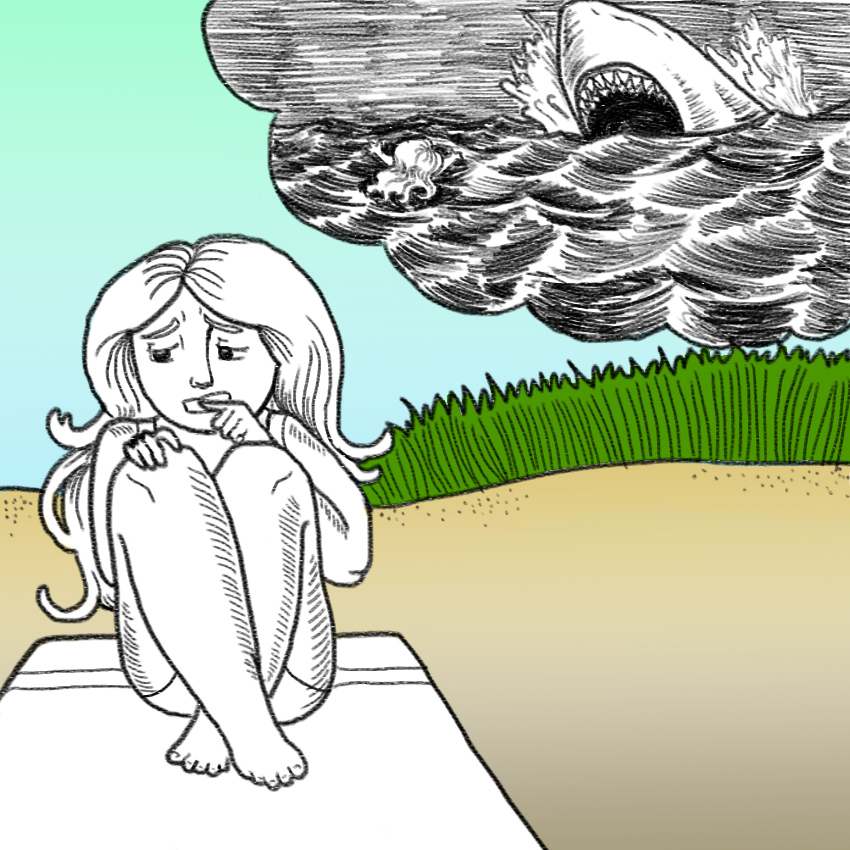
Shark attacks, despite what many people believe, do not actually occur very often.
Movies would have you believe otherwise, but shark attacks are not even the most dangerous thing at the beach: sun exposure and accidental drowning are much bigger risks.
According to the Florida Museum at the University of Florida, the risk of death by shark attack is 1 in 3,748,067.
Things More Likely To Injure You Than Sharks
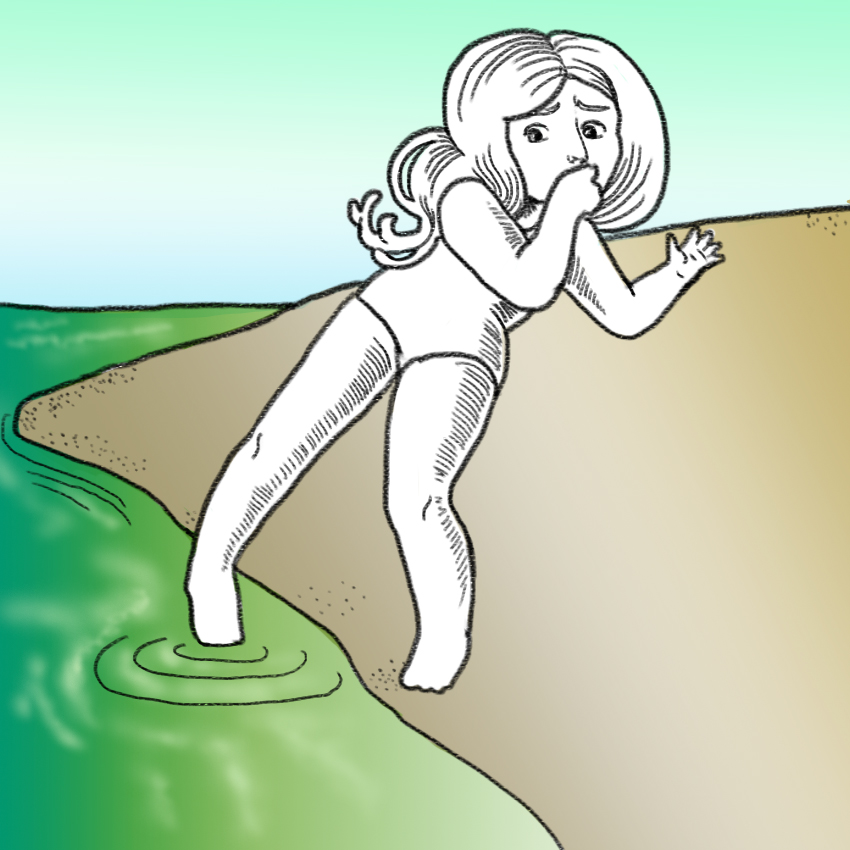
Yes, 1 in 3.7 million, or roughly .00002%. That means that it's very unlikely indeed that you will become the victim of a shark attack.
In fact, there are a lot of other, totally commonplace accidents that are much more likely to befall you — read the list below to find out more.
#1: Lightning Strikes
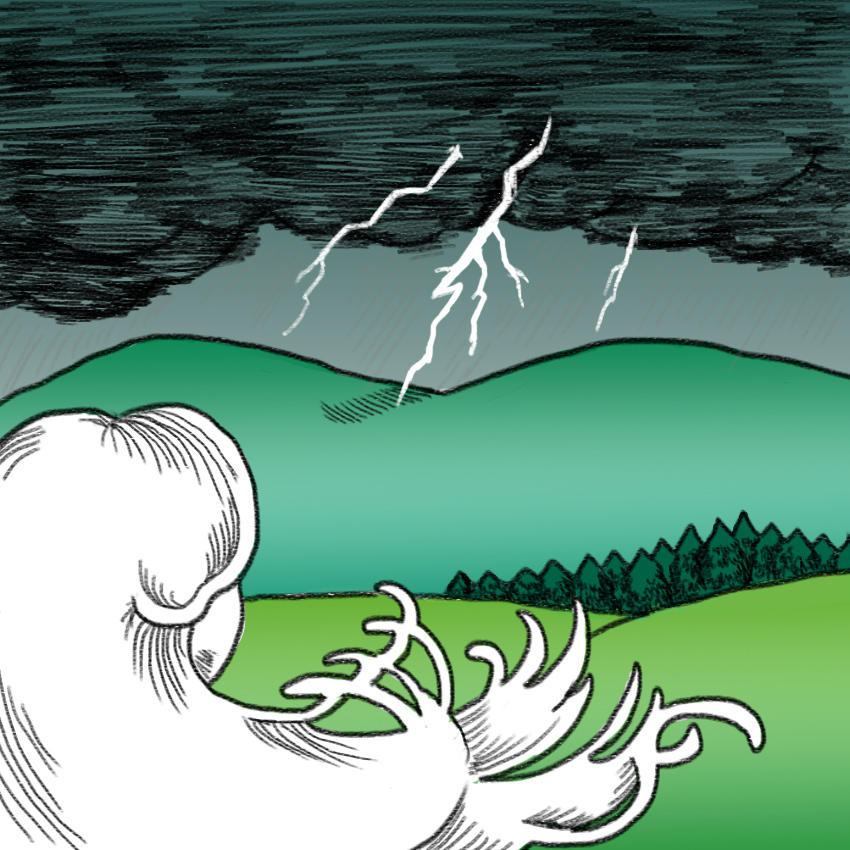
Getting struck by lightning is considered very rare; National Geographic explains that your odds of getting struck by lightning in your lifetime is 1 in 3,000.
That means that you're more than 1,000 times more likely to get struck by lightning than you are to get killed by a shark, with a very few exceptions.
In the US, residents of Hawaii, Florida, and California have a slightly higher risk of shark attack than lightning strike.
#2: Room Fresheners

You might laugh, but yes, room fresheners injure more people than sharks.
National Geographic reports that in 1996, room fresheners injured 2,600 American people, while sharks only injured 13.
#3: Buckets And Pails

Again, it might sound funny, but buckets and pails injure far people annually than sharks do.
According to those same 1996 statistics, 11,000 Americans were injured by buckets and pails, while only 13 were injured by sharks.
And yet, you don't see people shying away from buckets and pails, even though they're much more dangerous than sharks!
#4: The Flu
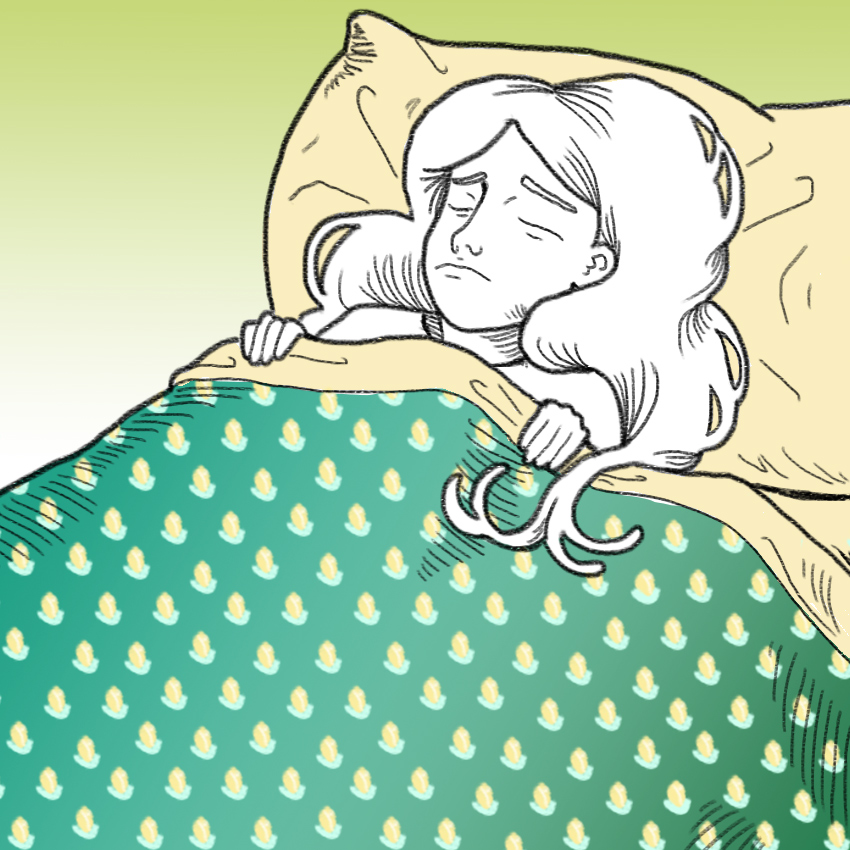
Nobody enjoys getting the flu, but most of us don't fear for our lives when we catch it.
Though flu seems benign, it can be a surprisingly dangerous illness.
The CDC estimates roughly 4,600 (or 1 in 100,000) deaths from flu every year in the United States.
Now, let me remind you that the chances of dying from a shark attack is 1 in 3.7 million.
#5: Fireworks

Although it's also pretty rare, it's more likely to get killed by fireworks than to be killed by a shark attack.
The chances are roughly 1 in 340,733, explains the Florida Museum.
Even if you don't like fireworks, it's probably not because they make you fear for your life. Still, setting off fireworks can be a risky business.
#6: Cows

The Washington Post reported on the average animal-caused fatalities annually in the U.S. from 2001 to 2013.
What they found is that while sharks are responsible for an average of one death per year, while cows are responsible for 20.
That's right, cows are more fearsome than sharks.
#7: Bees, Wasps, And Hornets

The same article from The Washington Post explains that hornets, wasps, and bees are responsible for 58 deaths every year.
That's a 600% increase on sharks!
But sharks and bees do have something in common: they aren't really interested in hurting you.
Bees only bother you if you get too close, or if they confuse you with a flower.
By the same token, sharks would rather steer clear of you. Most shark attacks happen when the underwater creatures mistake surfers or swimmers for their preferred meal, seals.
Sharks don't hunt humans, and are actually quite scared of us, according to NOAA.
What Does This Mean?
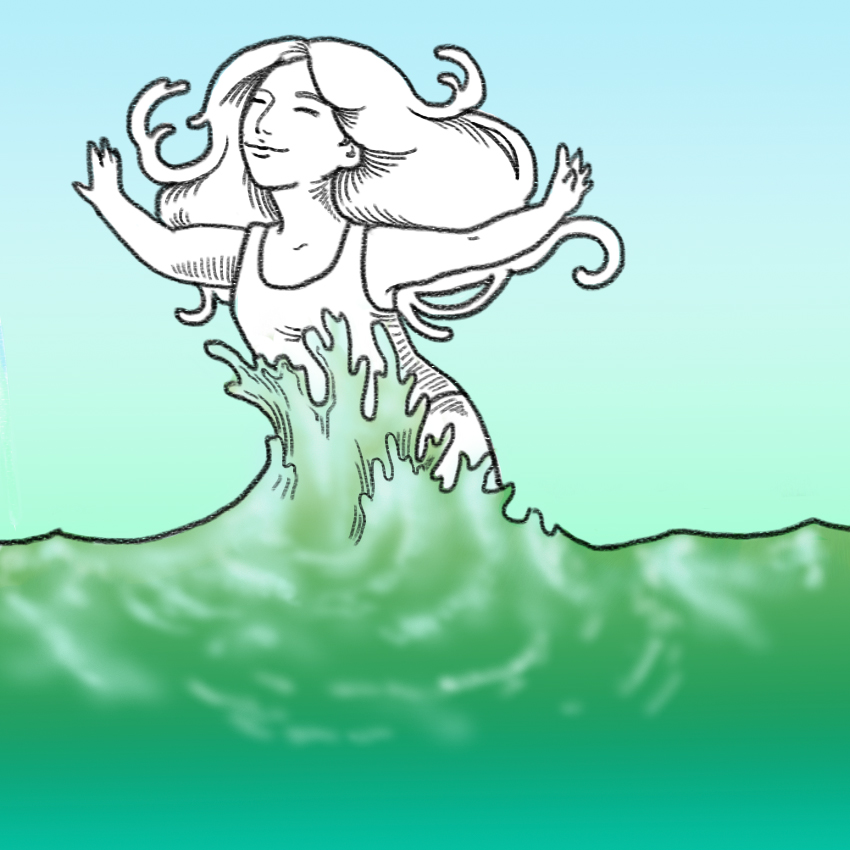
So, what do all these numbers and statistics add up to?
An awesome summer of jumping in the ocean!
If you've ever worried about sharks in the water, this should reassure you that hitting the waves is perfectly safe, especially considering how many ferocious air fresheners and buckets we face every day.
Of course, there are exceptions.
If lifeguards and other officials warn against going in the water, you should listen to them. But if there are no shark warnings, enjoy yourself and go swimming!
If you think sharks are unfairly given a bad reputation, please SHARE this article with your friends!




